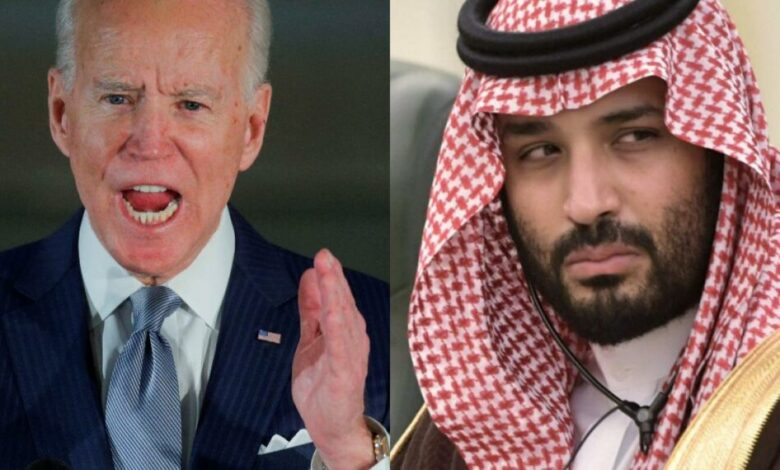
International experts considered that US President Joe Biden’s reluctance to hold Saudi Crown Prince Mohammed bin Salman accountable represents a failure of his policies.
This conclusion came in the Carnegie Endowment for International Peace researchers’ assessment of how the Biden administration dealt with the Middle East a year after it came to power.
Sarah Yerkes, a researcher in the Middle East program at the Carnegie Endowment, said that the approach adopted by the Biden administration so far in dealing with the Middle East and North Africa region has been disappointing in the eyes of people who expected a sharp break with the approach that prevailed during the Trump era.
Yerkes stated that it is true that President Biden pledged on more than one occasion to defend democracy and human rights in various parts of the world, especially in the Middle East, but he did not fulfil this promise.
The US administration has taken minimal steps towards reintegrating values into the US approach to the region, but for the most part, these measures have had little impact in the face of broader policies and indicators that clearly show that a large part of Washington’s commitment to democracy and human rights is empty talk.
In Saudi Arabia, Biden refused to communicate personally with Mohammed bin Salman, but he also refrained from holding him accountable for the murder of Jamal Khashoggi, despite US intelligence confirming the complicity of the Saudi crown prince.
The decision taken by the US administration to freeze the $130 million of the $1.3 billion aid package for Egypt did not meet the reasonable expectations of Egyptian and American human rights activists, and it did not succeed in sending a message to President Abdel Fattah al-Sisi that he would no longer receive “checks on the blank.”
For her part, Yasmine Farouk, a non-resident researcher in the Middle East program at the Carnegie Endowment, said that a statement by US Secretary of State Anthony Blinken that “the partnership with Saudi Arabia is strong and important,” summarized by saying this Biden’s policy of “redirecting” relations with the Kingdom after A year has passed since she assumed the presidency.
Farouk stated that the Biden administration began its mandate by focusing on the role of values in foreign policy in general and dealing with Saudi Arabia in particular.
But it seems that the first year of the current term will end with the assertion that the United States is “back to basics” in its relationship with its partners in the region. But values were never among the foundations of its relations with Saudi Arabia.
She noted that although President Biden significantly reduced the momentum of the relationship with Riyadh to the point of destabilizing it, his administration quickly realized that it had to relieve pressure on the Kingdom because it still needed to cooperate with it in the Middle East and beyond.
Several factors necessitate friendly relations with the Saudi leadership, including confronting Chinese influence, stabilizing oil prices to “rebuild better,” proving that democracy is capable of achieving the desired results, concluding an agreement with Iran, and maintaining Supporting Congress by, for example, finding a solution to the conflict in Yemen.
Riyadh, in turn, realized that strengthening the American partnership with other Gulf countries contributes to its setting aside, as the Kingdom no longer plays a vital and indispensable role for the United States as it was in the past. Therefore it has to make concessions to maintain American support when it is urgently needed.
In this context, Saudi Arabia has released some political detainees, reduced its hard-line foreign policy, and even launched two climate initiatives, in line with Biden’s focus on the issue of climate change. But in the meantime, it has sought to diversify its international relations, which indicates that it will not match Washington’s policies regarding oil, China, or even Yemen.
So, it seems that the two sides are trying to reach a compromise that serves their interests. But Biden promised during his election campaign that he would do everything in his power to rein in the Kingdom. We now know that this will not happen.